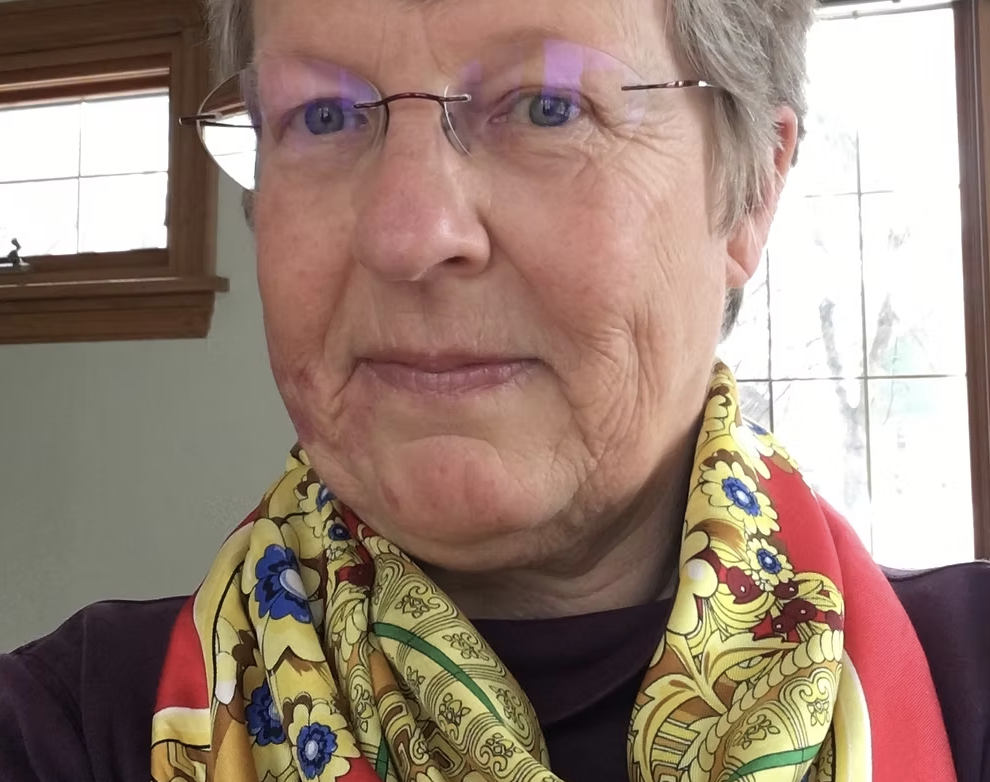Tyler Jorgensen’s essay “Kind of Blue: Improvisations at the Bedside” (Non-Fiction, Intima, Spring/Summer 2025), likens various medical specialties to different musical genres; for example, emergency medicine is punk rock and anesthesiology is electronica. But palliative medicine is pure jazz relying on, as pianist Bill Evans wrote, “sympathy from all members to bend for the common result.” When one musician—or one person accompanying a dying patient—fails to attend to the flow of the work, there is dissonance. Jorgensen’s essay brought to mind the metaphor of the “estranged daughter from California,” a concept introduced to me while my mother prepared for her medically-assisted death last year, an experience I describe in my essay, “An Otherwise Ordinary Day” (Non-Fiction, Intima, Spring/Summer 2025).
At its best, dying is not a solo act but a collaborative experience with one lead role supported by an ensemble of players whose lines are directed by and to that central figure. However, sometimes, not everyone gets the memo about who is playing the lead role; when they enter the scene, they land with a crashing discordant note that disrupts the rhythm of what their loved one is orchestrating by choice.
The “estranged daughter from California” arrives breathlessly, unexpectedly, and inserts herself into what had been unfolding as a thoughtful unwinding of a life. Although she might not actually be from California, “she” is an expression used by MAiD (Medical Assistance in Death) practitioners to describe that relative (usually a child, often a daughter) who shows up to rail against the dying person’s wishes to end their life with MAiD. The “daughter” has not been present for the daily reality of struggle and pain, loss of agency and dignity in daily life. This person has an idealized view of old age or illness and wants their mummy or daddy to live forever.
But that is not the melody being orchestrated by the parent, so when the “daughter” arrives, the parent—who should be the center of attention and care—must focus their precious waning energy on that person’s needs and emotions. How it ends depends on the players involved. Will the daughter find the grace and generosity to hear the melody the parent is playing? Or will the “daughter from California” insist on beating her own drum loud enough to make her single note change the nature of the whole song?
In my mother’s case, my sister and I were present and engaged with her in the death she had chosen. While we improvised along the way (as anyone might the first time through an unknown bluesy tune), we reacted and responded to the lead our mother took.
We are not a musical family, but the melody we ended up playing was harmonious and was orchestrated every step of the way by the main player, who stood firm and clear on the podium that was hers alone to stand on.
Amanda Le Rougetel
Amanda Le Rougetel retired from college teaching to be a writer and community educator; she lives in Winnipeg, Manitoba, Canada. Her focus is short-form creative non-fiction essays, 50-word stories, and 100-word micro-memoirs. She facilitates learning in community classrooms about how writing can be a tool for transformation in our lives. Personal agency and autonomy are themes that inform her teaching and show up in her writing. Her work has been published, among other places, in Brevity magazine, on Brevity blog, and in the Globe and Mail, Canada’s national newspaper.

